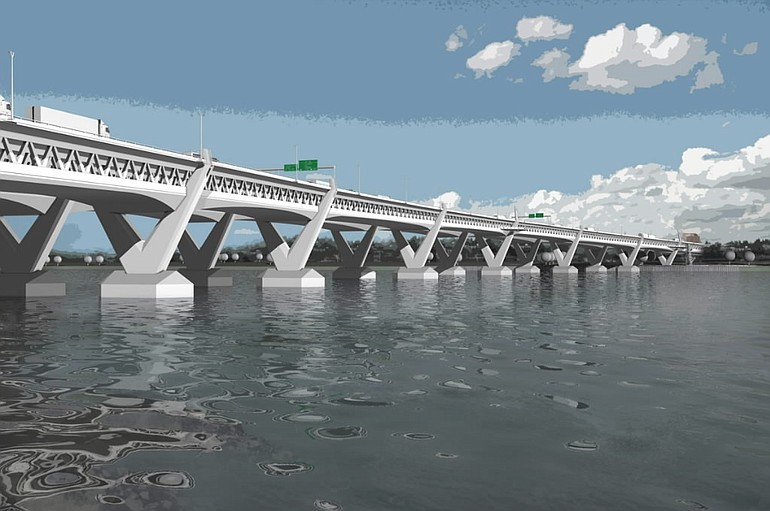Gov. Chris Gregoire says she and Oregon Gov.-elect John Kitzhaber will present a united front on the need for a federal commitment to the Columbia River Crossing when they meet with the U.S. transportation secretary in February.
In an interview with The Columbian on Wednesday, the governor said Kitzhaber already has reached out to her about the need for the two states to work together to lobby for significant federal funding for the project.
“When we go to the National Governors’ Association meeting in February, we will go together and pay a visit to Transportation Secretary Ray LaHood,” Gregoire said. “We are going to show the secretary that we are ready and need some help from the secretary of transportation.”
Gregoire was elected chairwoman of the association in November and will serve in that position until next July. The association will hold its winter meeting in Washington, D.C., in late February.
Kitzhaber signaled his intention to push for funding for the crossing shortly after the election, noting that he’d already spoken with Gregoire, U.S. Sen. Patty Murray and U.S. Rep. Peter DeFazio, D-Ore., about moving the project forward.
Kitzhaber also spoke with LaHood about the project late last month during his own visit to Washington, D.C.
Despite some continued opposition to tolling in Clark County, Gregoire said she believes there is general acceptance now that bridge tolls will provide the local match for the project.
“It has taken us some time to get through this” and let the public engagement process play out, she said. “We had to get past that.”
On a less positive note, Gregoire said the state has no clear source of revenue to pay its own share of the project’s estimated $3.6 billion cost. The two states and the federal government have invested a total of $134 million to date for planning and design work.
“When we move to construction, I don’t know how much the state is going to be able to contribute,” she said. “In a couple of years, some kind of revenue package will be necessary. It’s a megaproject that cannot go on tolls alone.”
Gregoire said an increase in the state gas tax might not be the best solution, because the tax is a declining source of revenue. She didn’t speculate on what other revenue sources might be available.
Despite the uncertainty, state transportation officials say the project is on the right track.
“If uncertain funding and changes in economic conditions were the only things that drove decisions around megaprojects, there would never be a megaproject built,” said David Dye, Washington’s deputy secretary of transportation.
The bistate consensus puts the project in a strong position for federal funding, he said.
Indeed, significant federal funding for a new Interstate 5 bridge became more likely in August, after local elected leaders, including the mayors of Vancouver and Portland, endorsed a 10-lane span.
Earlier this year, Murray, who chairs the Senate subcommittee that funds federal transportation projects, secured $42 million for the crossing in an appropriations bill, calling that a down payment on a bigger federal obligation.
The crossing would replace the existing twin three-lane drawbridges, improve five miles of freeway on both sides of the river and extend Portland’s light-rail transit system into Vancouver.
Project planners anticipate a three-way cost split among the federal government, the two states and local revenue generated by bridge tolls.
Ultimately, Murray hopes to win $400 million in federal money toward the cost of the bridge, which is part of the federal interstate highway system. In addition, the Federal Transit Administration is expected to provide at least $750 million to build a light-rail extension to Clark College.
Staff writer Erik Robinson contributed to this report.
Kathie Durbin: 360-735-4523 or kathie.durbin@columbian.com.



